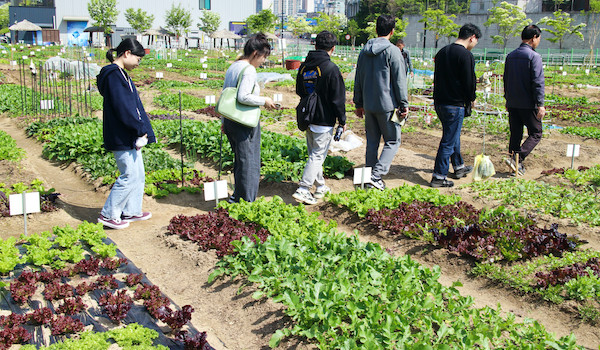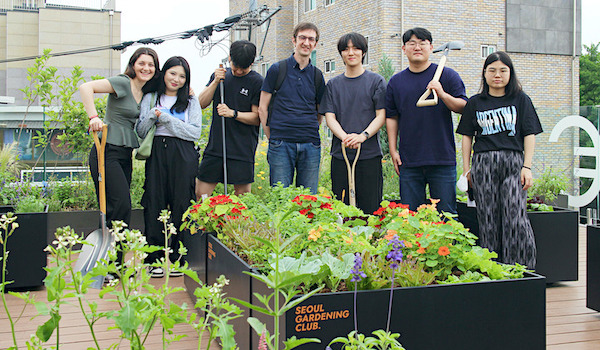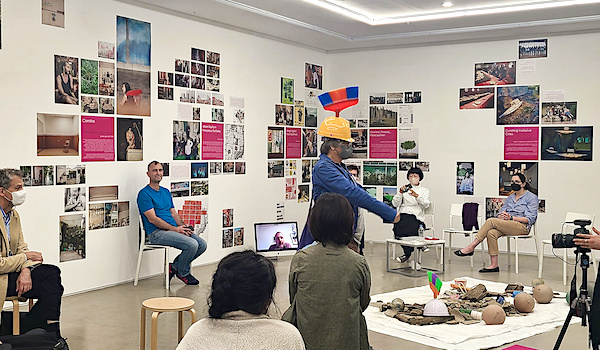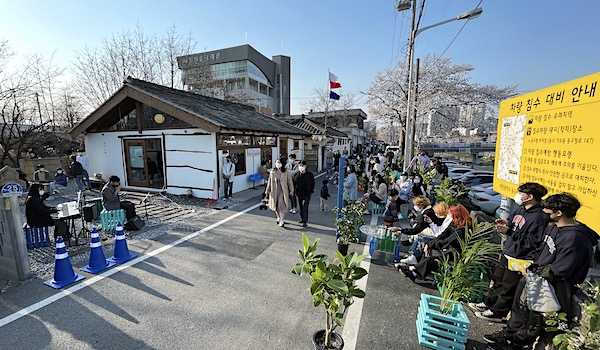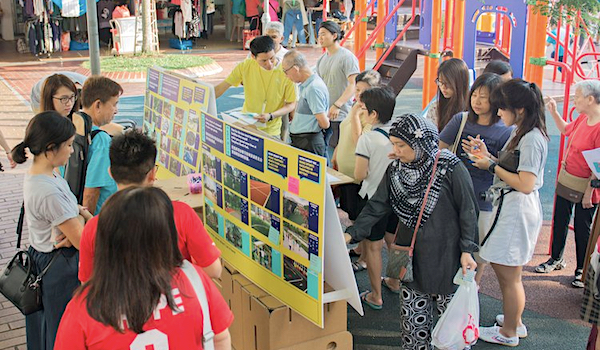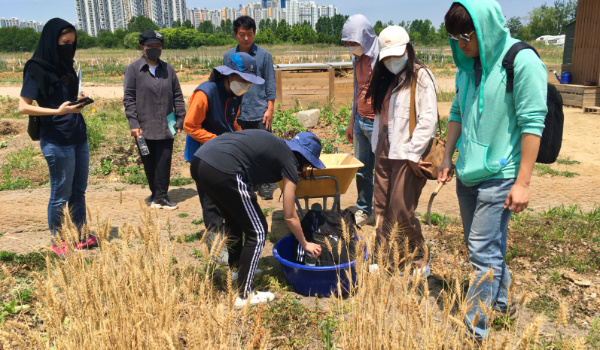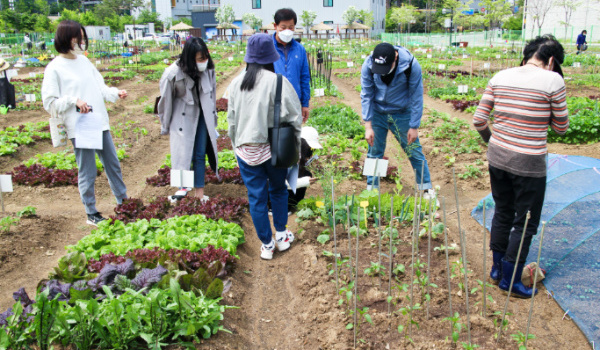A year has passed, and it is time for urban gardening fieldwork with our students. This year, the focus is on urban gardening in Seongdong-gu. We have visited 성동 무지개텃밭, a public allotment garden, and 송정동 서울가드닝클럽 공유정원, which is a private rooftop garden.
어느덧 일 년이 흘렀고, 학생들과 함께하는 도심 텃밭 견학 시간이 되었다. 올해는 성동구의 도심 텃밭을 집중적으로 살펴보았다. 성동구에서 운영하는 공공 텃밭인 무지개텃밭과 서울가드닝클럽이라는 민간 업체에서 운영 중인 옥상 공유정원에 방문했다.
Seongdong-gu District Government manages the public garden. Participation is affordable although limited in practice because of the garden’s huge popularity. There were over 3,000 applicants this year, competing for about three hundred plots that are available on the 무지개텃밭. In contrast, Seoul Gardening Club is a private business that manages the rooftop garden and curates community gardening experience for which it charges a membership fee. About twenty participants are taking part in the 송정동 서울가드닝클럽 공유정원 this season.
Seongdong-gu district government provides urban gardening support and basic education, while Seoul Gardening Club offers a comprehensive experience that goes beyond basic education and includes in-depth gardening programme, cooking classes, yoga sessions, beekeeping experience, etc.
Seongdong-gu District Government and Seoul Gardening Club also aim to build stronger neighbourhood communities beyond urban gardening. However, the students found out that these efforts had a limited success so far. Stronger collaboration between public and private sector may be needed to overcome current limitations of public and private community building efforts, create synergy between both, and in this way expand community gardening in Seongdong-gu.
